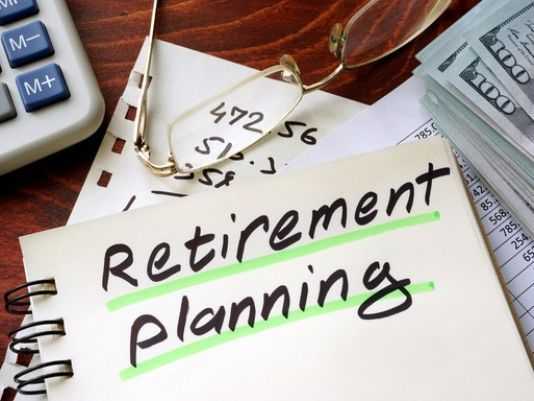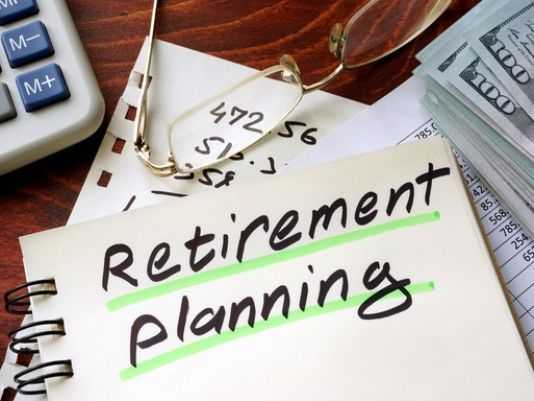Home
 Finance News
Finance News
 Retirement Dream -- More Money For Travel, Less For Health Care -- Tough To Achieve
Retirement Dream -- More Money For Travel, Less For Health Care -- Tough To Achieve
 Finance News
Finance News
 Retirement Dream -- More Money For Travel, Less For Health Care -- Tough To Achieve
Retirement Dream -- More Money For Travel, Less For Health Care -- Tough To Achieve
Retirement Dream -- More Money For Travel, Less For Health Care -- Tough To Achieve
Retirement dream -- more money for travel, less for health care -- tough to achieve
Retirement dream -- more money for travel, less for health care -- tough to achieve
Traditionally, retirement has a meant a shift in household budgets from the obligatory to the indulgent -- from mortgages payments, work suits and gasoline to exotic trips, golf and upscale restaurants.
But while older Americans would like to significantly ramp up spending on indulgences like travel and dining out when they retire, many are downsizing those visions, according to an Ipsos/USA TODAY survey.
For example, a quarter of 45- to 65-year-olds want to set aside 21% to 40% of their post-retirement budgets for travel, but only 13% feel they'll be able to do so, according to the September survey of 1,170 people in that age bracket. Just 2% of those surveyed currently earmark that much for trips, with 98% spending zero to 20%.
At the same time, 53% want to devote less than a fifth of their outlays to living expenses — things like groceries, utilities and healthcare — in their golden years. But just 37% think they’ll reach that goal, with 57% expecting to allocate a fifth to three-fifths of their budgets to those basics, the same portion that spends that amount today.
Not keeping pace
The gap between middle-aged and older Americans’ desires and expectations is at least partly a byproduct of the Great Recession and its aftermath, which left many with shrunken nest eggs and stagnating incomes, financial planners say.
“Although the stock market has finally recovered, many people don’t feel like they did 10 years ago,” before the 2007-09 recession, says Sheryl Garrett, a certified financial planner and founder of Garrett Planning Network. “Their income is not up and it’s not keeping pace with inflation.”
Wages have risen about 2% a year for the average American and many of the nearly 9 million laid off during the downturn were forced to take lower-paying jobs for which there were overqualified.
Also, many of the middle-class clients Garrett serves sharply reduced their stock holdings during the 2008 crash and so haven’t benefited as much from the eight-year-old bull market. An Ipsos/USA Today survey earlier this year found that 27% of 45- to 65-year-olds have no retirement savings or investments and another 22% have less than $100,000.
Meanwhile, Congress is considering repealing or scaling back the Affordable Care Act and slicing Medicare benefits to whittle down the ballooning national debt — measures that could swell older Americans’ health care costs.
“Health care is the big unknown,” Garrett says. As a result, while basic expenses, like the daily work commute and lunch with a co-worker, may disappear in retirement, rising medical bills could easily take their place, tempering spending on more pleasurable activities.
Waiting for something bad to happen
Veronica Ybarra, 54, of Albuquerque, N.M., was laid off from her technical writing job for a government contractor in 2013, an event she says was a delayed response to the effects of the recession. Although Ybarra is freelancing, her income is far less than her previous salary.
“I really hunkered down,” she says. “I haven’t had a real vacation since I can’t remember when.”
Ybarra used to take weeklong trips to California and to visit relatives in Denver and Chicago. When she retires at age 66 to 70, she figures she’ll resume her prior travel pattern as Social Security kicks in and she starts drawing from her 401(k) money. But ideally, she would like to take extended trips, spending three weeks in Europe, for example, and devoting as much as 40% of her budget to travel rather than the 10% she’s planning. That will be possible, she says, but only if she can reclaim her former income through freelancing or another full-time job.
Ybarra similarly has cut back on entertainment, meeting a friend for dinner or coffee once a week instead of two to three times as she used to – a practice she would like to resume in retirement. Nine percent of the older Americans surveyed by Ipsos/USA TODAY expect to devote 21% to 40% of their budgets to entertainment and dining out after they stop working — up from the 4% who do so now — but 18% would like to allocate that much.
Ybarra is also being conservative in her planning because she worries the frothy stock market could crash, pummeling her retirement fund. “I just keep waiting for something bad to happen,” she says. And she fears Congress will dial back health coverage requirements. “Is my premium going to double?" she asks.
On the bright side, she has paid off the mortgage on her three-bedroom townhouse and she has no other debt.
Focus on debt reduction
“One of the things we encourage is to do the best you can to get rid of any and all debt” before retirement, says Sterling Raskie, a certified financial planner at Blankenship Financial Planners in Illinois. “It frees cash flow for other things.”
Forty-six percent of the older Americans surveyed currently spend 20% or less of their budgets on housing costs, though 62% expect to be in that position after they retire and finish paying off mortgages. But 77% would like to devote that little to housing. Millions of people lost their homes to foreclosure during the housing meltdown and either rented or eventually bought new homes that extended their mortgage payments into retirement. Others took out home equity lines of credit during the housing run-up that also prolonged their housing cost burdens, Garrett says.
Gary Gross, 57, of Dillwyn, Va., retired in 2010 after working 25 years in public works for a town in southern New Jersey. His wife, Teresa, retired from a job in the same town shortly after and both received pensions. They expect to spend 10% of their budget on travel and 15% on entertainment in coming years but would prefer to spend 30% and 25%, respectively. Instead of two-day trips to Washington, D.C., or the Blue Ridge Mountains, they’d like to go to Las Vegas or Orlando— for a week or so.
Gary is being cautious in part because he has about $9,000 in credit card debt.
“I want to pay off the credit cards,” he says. “I don’t like having a lot of debt.”
Source:- https://www.usatoday.com/story/money/2017/11/26/retirees-dream-more-travel-less-health-care-tough-achieve/890562001/
You May Also Like
3 Unexpected Retirement Costs Tha..
What You Don't Know About Social ..
Must-have Tools And Tips For Year..
This Is The Maximum Social Securi..
The Profits Made From Flipping Ho..
Must-have Tools And Tips For Year..
Ask A Fool: IRA Vs. 401(k), Which..
Want To Be An Expat? 3 Signs You ..
Share the joy
Recent News
Retirement dream -- more money for travel, less for health care -- tough to achieve
What you don't know about Social Security in 2018
Must-have tools and tips for year-end retirement planning
3 unexpected retirement costs that can shake up your finances
This is the maximum Social Security retirement benefit payable in 2018
Ask a Fool: IRA vs. 401(k), which is the better choice
Recent Articles
Searching For The Option Of Private College Loans, Find The Best Student Loan, Best Student Loan C..
Refinance Student Loans, Best Private Student Loan Options, Best Student Loan Companies, Choose Th..
Parent Plus Loans And Its Wonderful Advantages, Choose The Best Student Loans, Best Student Loan C..
Online College Vs. Traditional Degrees, Student Loan Consolidation, Best Private Student Loan Opti..
Knowing Everything About The Federal Consolidation Loan, Graduate Student Loans, Graduate And Prof..
How To Find Low-Interest Student Loans, Low-interest Student Loans, Find The Best Student Loan, Be..





 Home
Home














